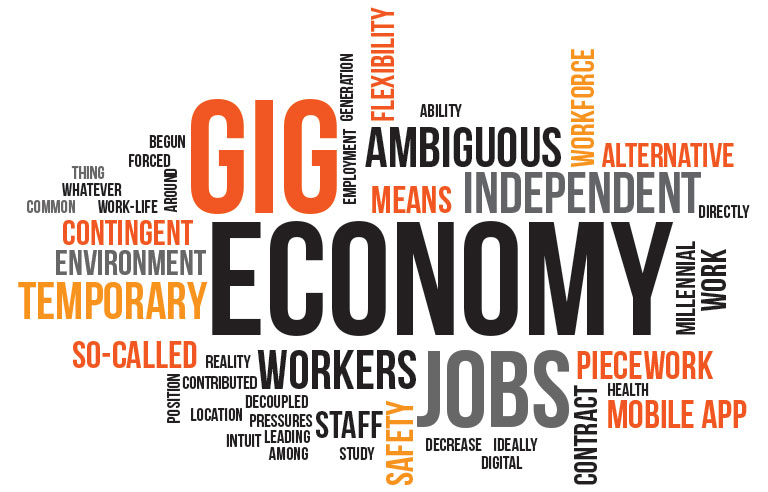Welcome To The Gig Economy
Uber has transformed the experience of getting and travelling in a taxi to get from one place to another. But it is only the tip of the iceberg in the landscape of the emerging digital economy.
Uber rules
Even though Uber is ten years old and attracted billions of pounds in investment it has yet to make a profit. The original owners are of course immensely rich, unlike the people who drive the taxis and often work for less than minimum wage. But it is just one visible part of a gig economy made up of casual, insecure and on-call jobs. The sector has grown in recent years and includes millions of self-employed workers not counted in national statistics or treated as employees by the companies that effectively employ them. Technology drives the phenomenon, as workers and customers use smartphones to connect and make payments. The technology relies on the availability of drivers to use their own private cars to provide a taxi service in response to demand. Such insecure work is growing and technically reducing the number of people registered as unemployed. But many who work in the gig economy are overworked, underpaid and unduly stressed as the model differs from traditional employment contracts. The trend also leads to an increase in the number of people who earn low wages, receive little or no employee benefits and live in prolonged poverty.
New rules
The gig economy provides an array of digital platforms that link labour with customers through a bidding process that allocates work to the cheapest. Because the platforms are accessible throughout the world much of the work goes to lower wage locations to the loss of home markets. As a result, work is lost and tax receipts fall in a technology-fuelled, gig-driven race to the bottom. And for those who survive the cost is borne through greater stress and ill health, which increase demands on health services without the payment of employer taxes. The technology platforms measure everything workers do to increase company profit and productivity but they don’t measure the impact on people, as those who suffer from burnout are substituted by the next self-employment statistic. In practice, workers in the gig economy should be treated as employees who enjoy the normal rights and protections of an employer. But the digital economy has proven its ability to destroy and create jobs in a way that is brutally unfair to those caught in a twisted new model of capitalism. It is of course possible to accommodate the needs of workers and employers but the gig economy is rewriting the rules in a way that is devastating lives.
So, the gig economy is spreading at an alarming rate and unless it slows workers will suffer as the new model destroys traditional societal values and relationships.




